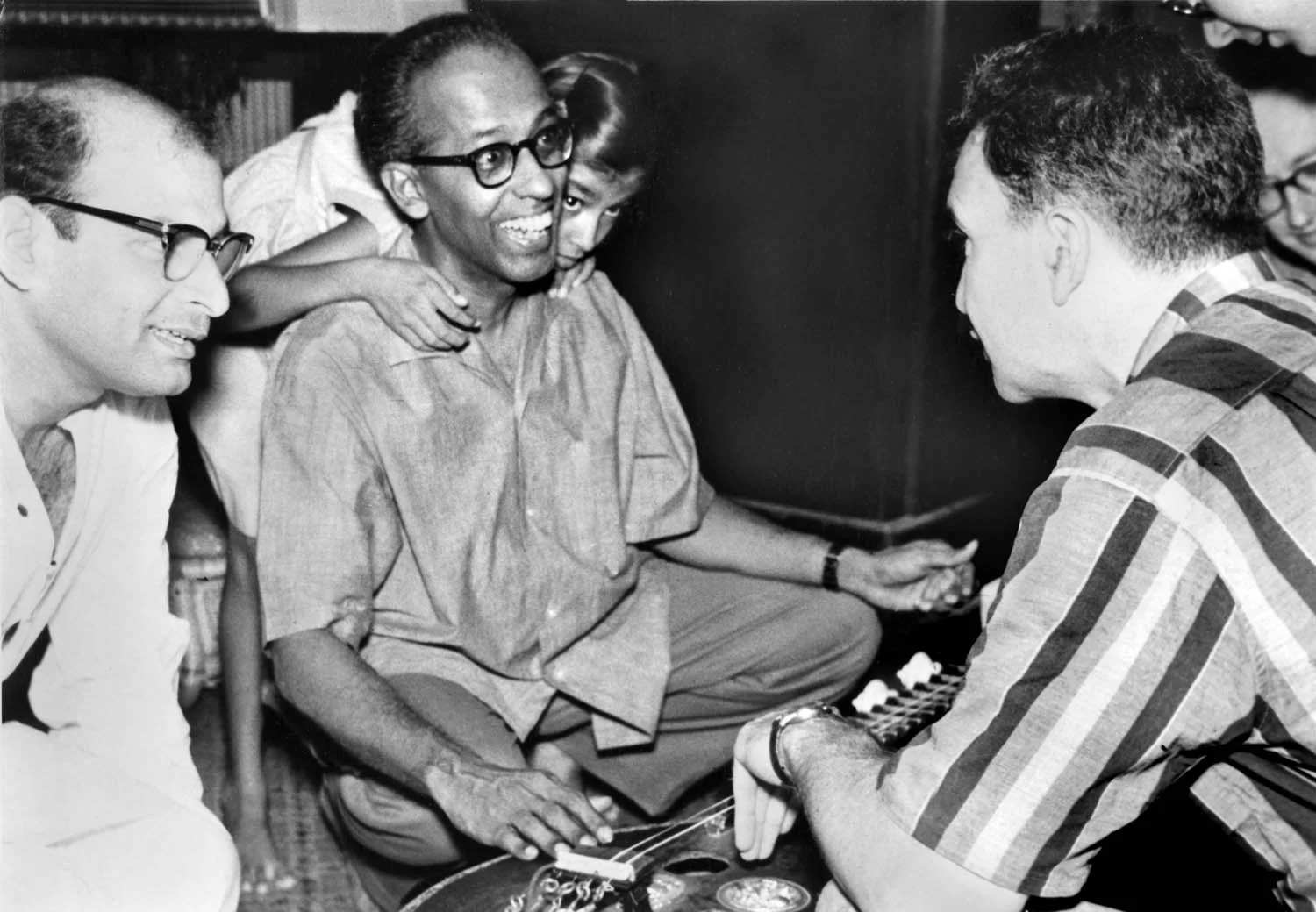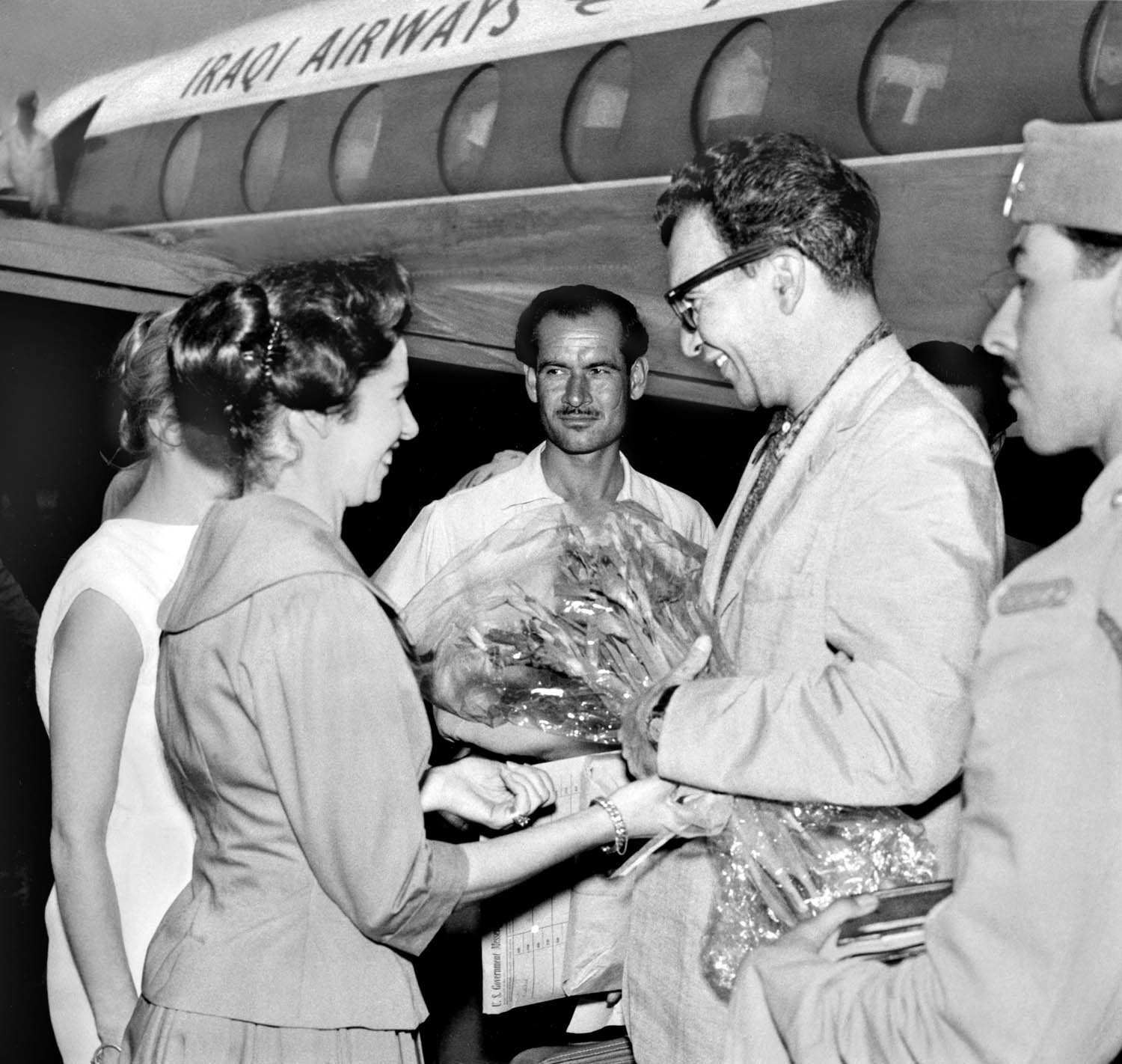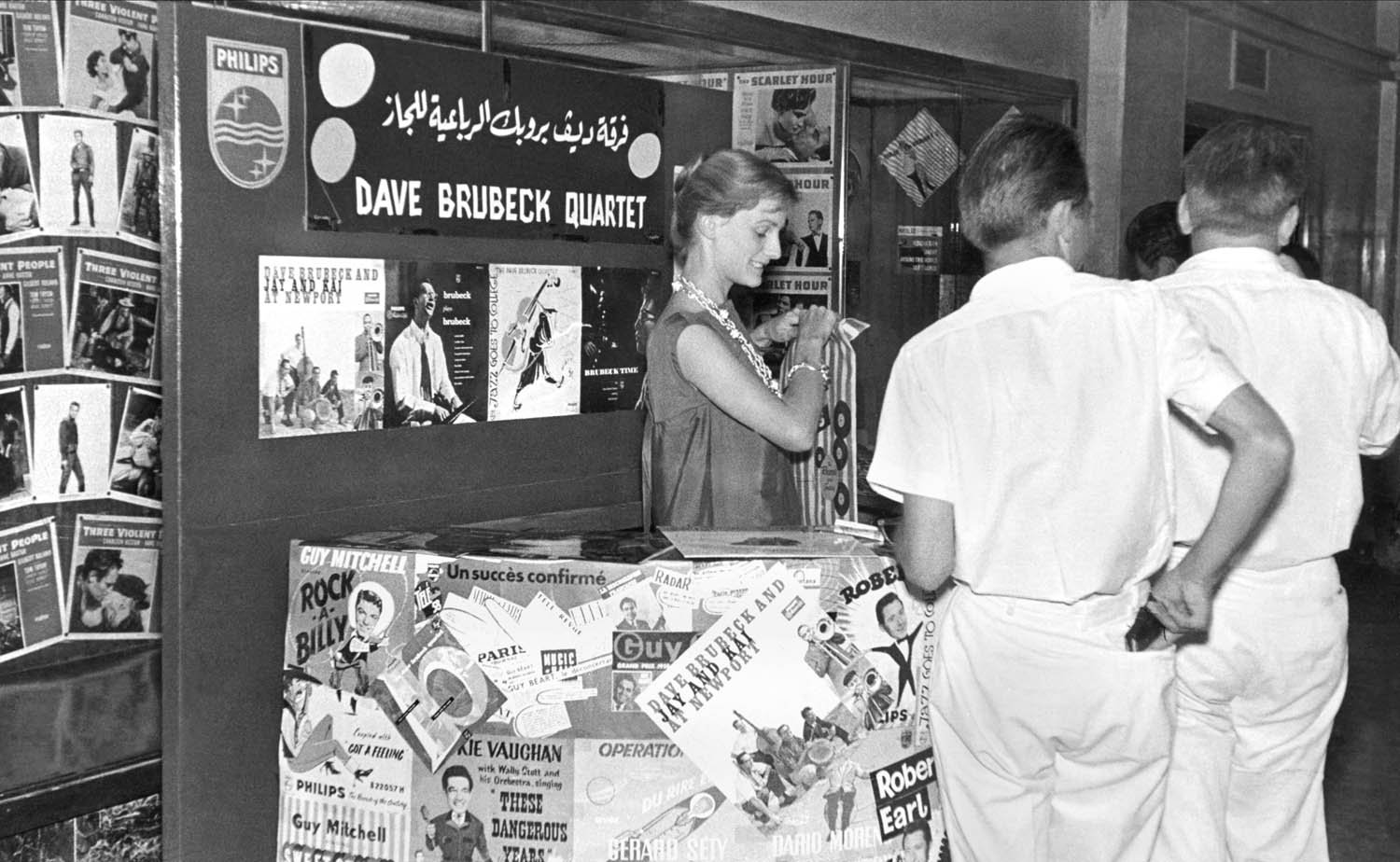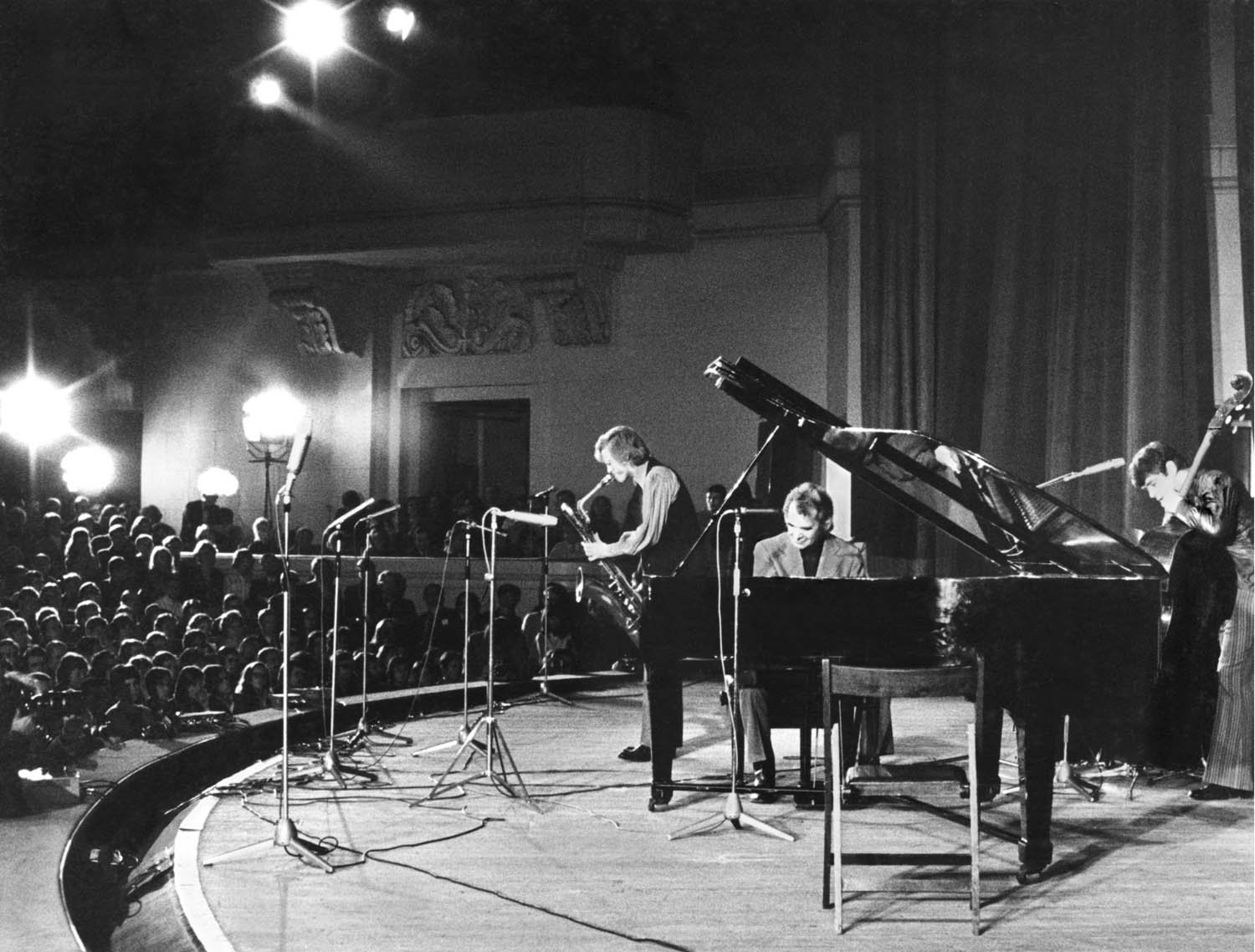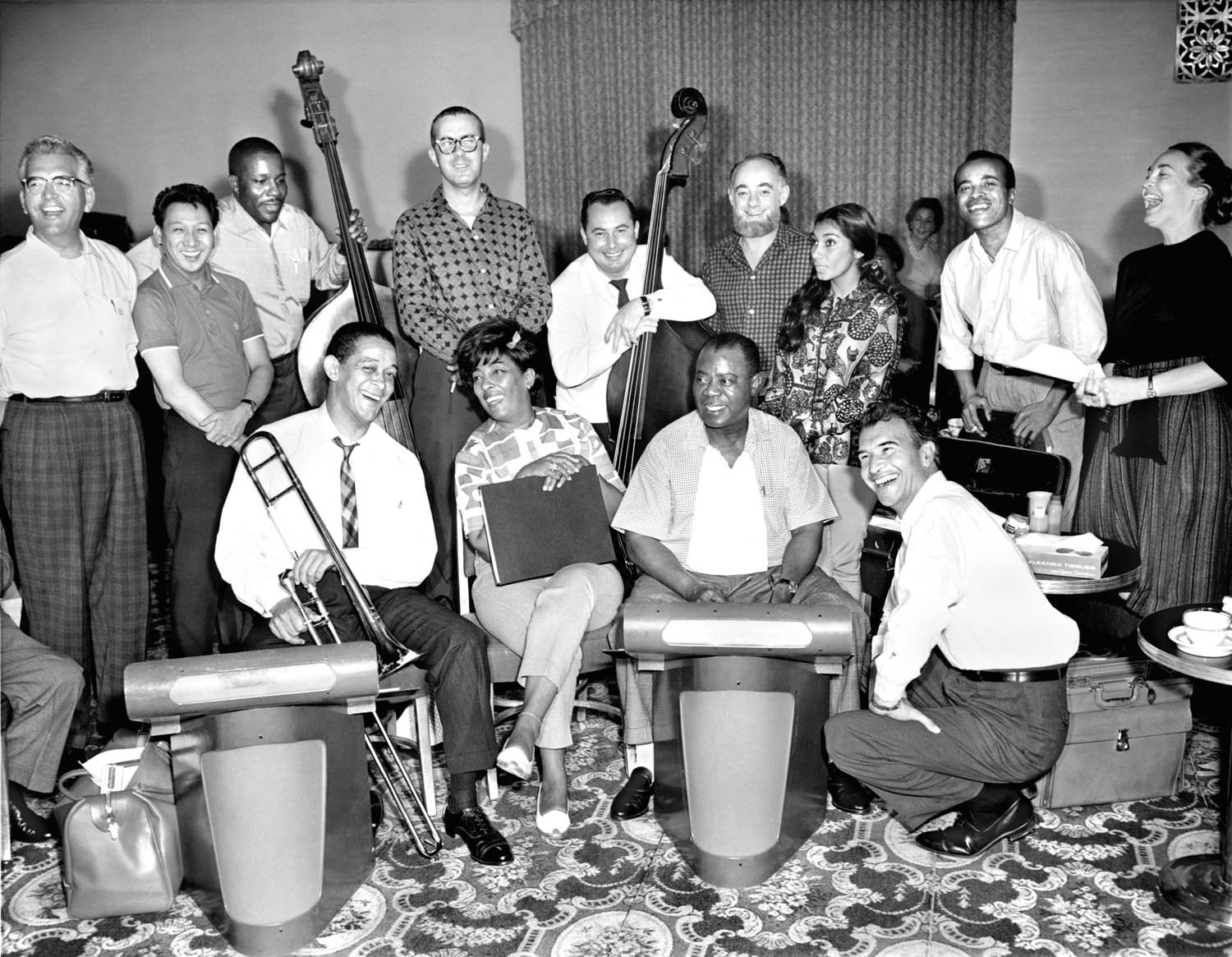Dave Brubeck
The Dave Brubeck Quartet in concert. Poznan, Poland, 1958. Courtesy of the Brubeck Collection, Holt-Atherton Special Collections, University of the Pacific Library. Copyright Dave Brubeck.
The Timing Was Right
The 1958 State Department tour of jazz pianist and composer Dave Brubeck and his integrated classic Quartet, with saxophonist Paul Desmond, drummer Joe Morello, and bassist Eugene Wright, marked the first foray of the Jazz Ambassadors across the Iron Curtain. The group began the trip after a commercial gig in Stockholm, traveling through East Germany to Poland, and from there to Turkey, India, Ceylon, Pakistan, and Afghanistan. Their itinerary then took them into Iran and Iraq on the eve of a major political crisis in the Middle East.
The experience of crossing into East Berlin to acquire the visas needed for Poland inspired Brubeck’s composition Brandenburg Gate. Once in Poland, he and his family developed an affinity for local jazz musicians whom they considered very good. Brubeck often spoke at his performances, and drew tremendous applause when he said, “No dictatorship can tolerate jazz. It is the first sign of a return to freedom.” For their last concert, in Poznan, he wrote a song called Dziekuje, Polish for “thank you,” that included a Chopinesque introduction in acknowledgement of the reverence for Chopin in Poland. Backstage one Polish jazz enthusiast asked, “Why don’t the artists rule the world?”
Brubeck and his Quartet traveled on to Asia where their admiration for the non-Western music they encountered could be heard in their own evolving style. Dave relished the opportunity to learn about new music, and in one instance tried to capture some of India’s sounds in his Calcutta Blues by incorporating Indian rhythms into the composition. When the band arrived in Istanbul, they were greeted by a Turkish group that serenaded them with the Quartet’s own arrangement of Tea for Two. In Ankara, they invited local musicians to join them onstage, and jammed fifteen choruses of All the Things You Are. Brubeck based his work The Golden Horn on the rhythmic pattern of the Turkish phrase, çok teşekkür ederim or “thank you very much.” The song, named for the narrow inlet of the Bosphorus that divides Istanbul, sought to evoke the bridge between Europe and Asia by combining a Turkish theme with Western harmony.
Keen observers of the State Department jazz tours and first-hand participants, Dave and his wife Iola later celebrated and satirized these trips in their 1961-1962 musical The Real Ambassadors, a collaboration undertaken with Louis Armstrong. As writer and lyricist Iola underscored, “the entire [American] jazz community was elated with the official recognition of jazz and its international implications.” Yet as the charismatic ambassadors, many of them African Americans, returned to the United States, the country’s racial problems had not been resolved. Within this context, the Brubecks wanted to honor Armstrong’s contributions to the Civil Rights Movement, and also to emphasize his key role as a musical diplomat. The Real Ambassadors was performed at the 1962 Monterey Jazz Festival to great critical acclaim, and the recorded album and subsequent CD continue to be widely appreciated.
